TL;DR: The podcast above features co-hosts
and , along with regular guests Robert Patman on Gaza and AUKUS II, and on climate change.The six things that mattered in Aotearoa’s political economy that we wrote and spoke about via The Kākā and elsewhere for paying subscribers in the last week included:
Climate: Ongoing double-digit hikes in council rates and insurance linked to climate change helped pump up March quarter inflation and is helping to delay mortgage rate cuts until late this year, or even early 2025. So should the Reserve Bank look through climate change inflation? It says no, but there’s a risk climate shocks drive up inflation and interest rates, delaying de-carbonisation investment. See more in Thursday’s email.
Transport Minister Simeon Brown asked Waka Kotahi-NZTA to again consider digging a 4-km-long four-lane motorway tunnel from The Terrace to Kilbirnie, shocking Wellington’s transport planners yesterday, who said the $10-billion-plus cost was prohibitive and wasteful. See more in Monday’s email.
Housing: Construction industry leaders say the Government’s freezing of funding for Kāinga Ora and water infrastructure was generating “weak” and “vague” signals about future pipelines for infrastructure and housing, which was helping to drive many builders closer to collapse. See more in Monday’s email.
Health: Associate Health Minister Casey Costello never passed official advice on to Cabinet with an analysis for the BMJ showing that keeping Labour’ssmokefree changes would have boosted consumers’ disposable incomes by $51 billion by 2050, more than offsetting $19 billion in net losses for the Government. See more in Monday’s email.
Climate: The size of the global economy will shortly peak, and then begin a steep decline, falling by at least one fifth by 2050 as a result of climate damages according to a new study by the Potsdam Institute for Climate Impact Research (PIK) and published in the journal Nature. See more in the Hoon in the discussion with Cathrine Dyer and here in the article and video we published earlier today.
Population: Stats NZ reported a record-high 226,000 non-New Zealand citizens migrated here in the year to February, while a record-high 74,900 New Zealand citizens migrated elsewhere, with just over half leaving for Australia. That equals a full A320 each day, with most getting off in Australia. See more in Monday’s email.
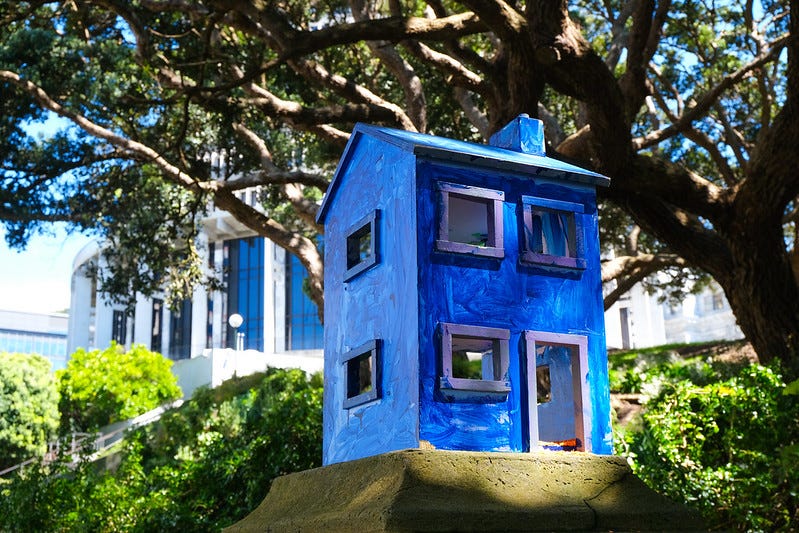
What we talked about on ‘The Hoon’ on Thursday night
In this week’s podcast above of the weekly ‘Hoon’ webinar for paying subscribers at 5pm on Thursday night:
5:00 pm - 5:10 pm -
and opened the show with a discussion about their favourite books and bingeing shows.5:10 pm - 5:20 pm - Peter and Bernard talked with Cathrine about the Potsdam paper in Nature. They also mentioned a Wired article downplaying the role of cloud seeding in Dubai’s floods this week, and an article by Auckland University’s Kevin Trenberth about the risks of geoengineering.
5:20 - 5:50 - Peter and Bernard talked with
about a growing debate about whether Aotearoa-NZ should join AUKUS Pillar Two. They mentioned an article by Robert and Marco De Jong on AUKUS.5:50 - 6:00 pm - Peter and Bernard talked about Bernard’s idea that a 1% levy on digital advertising to raise $21 million per year could support journalism by being distributed to subscription news producers at a rate of $2 for each $1 earned in new subscriptions.
The Hoon’s podcast version above was produced by Simon Josey.
(This is a sampler for all free subscribers. Thanks to the support of paying subscribers here, I’m able to spread the work from my public interest journalism here about housing affordability, climate change and poverty reduction around in other public venues. I’d love you to join the community supporting and contributing to this work with your ideas, feedback and comments.)
I produced an episode of When The Facts Change via The Spinoff, including this interview with Kiwibank Chief Economist Jarrod Kerr about a major shift in views on inflation and interest rates here in Aotearoa and globally this week: they’re now seen high for longer because the ‘last mile’ of inflation is proving harder to reduce than expected.
We also produce this 5 in 5 with ANZ daily podcast and Substack for ANZ Institutional in Australia, which you can sign up to via Spotify and Apple and Youtube for free.
Ka kite ano
Bernard
PS: Here’s the climate wrap we also produced this week with Cathrine, and the one-off podcast on the Potsdam report.















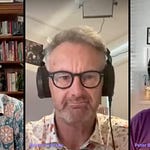
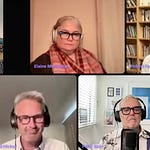
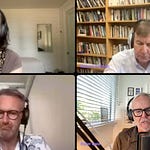
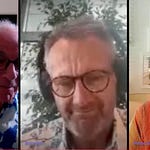

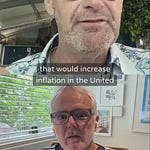

Share this post